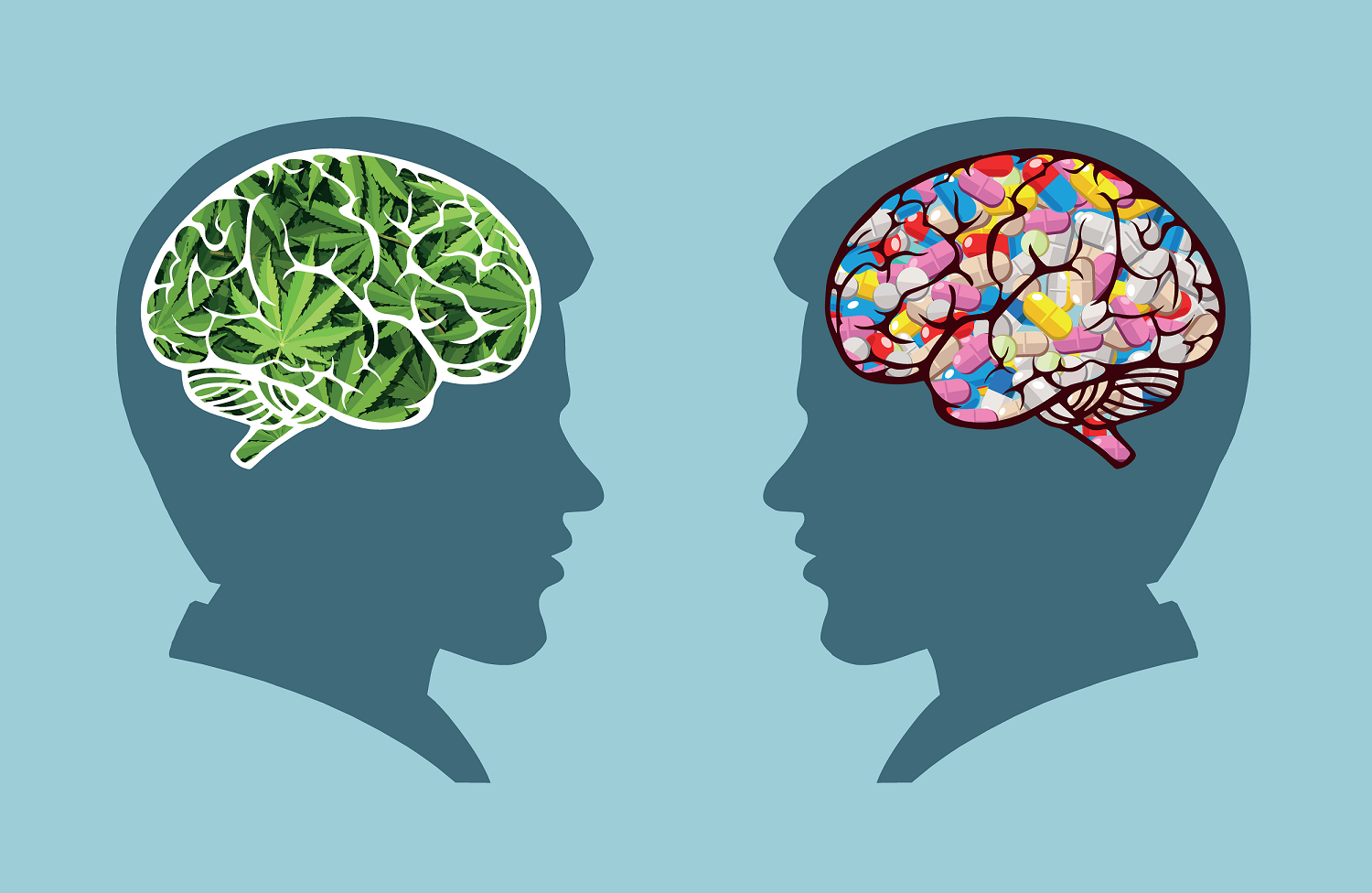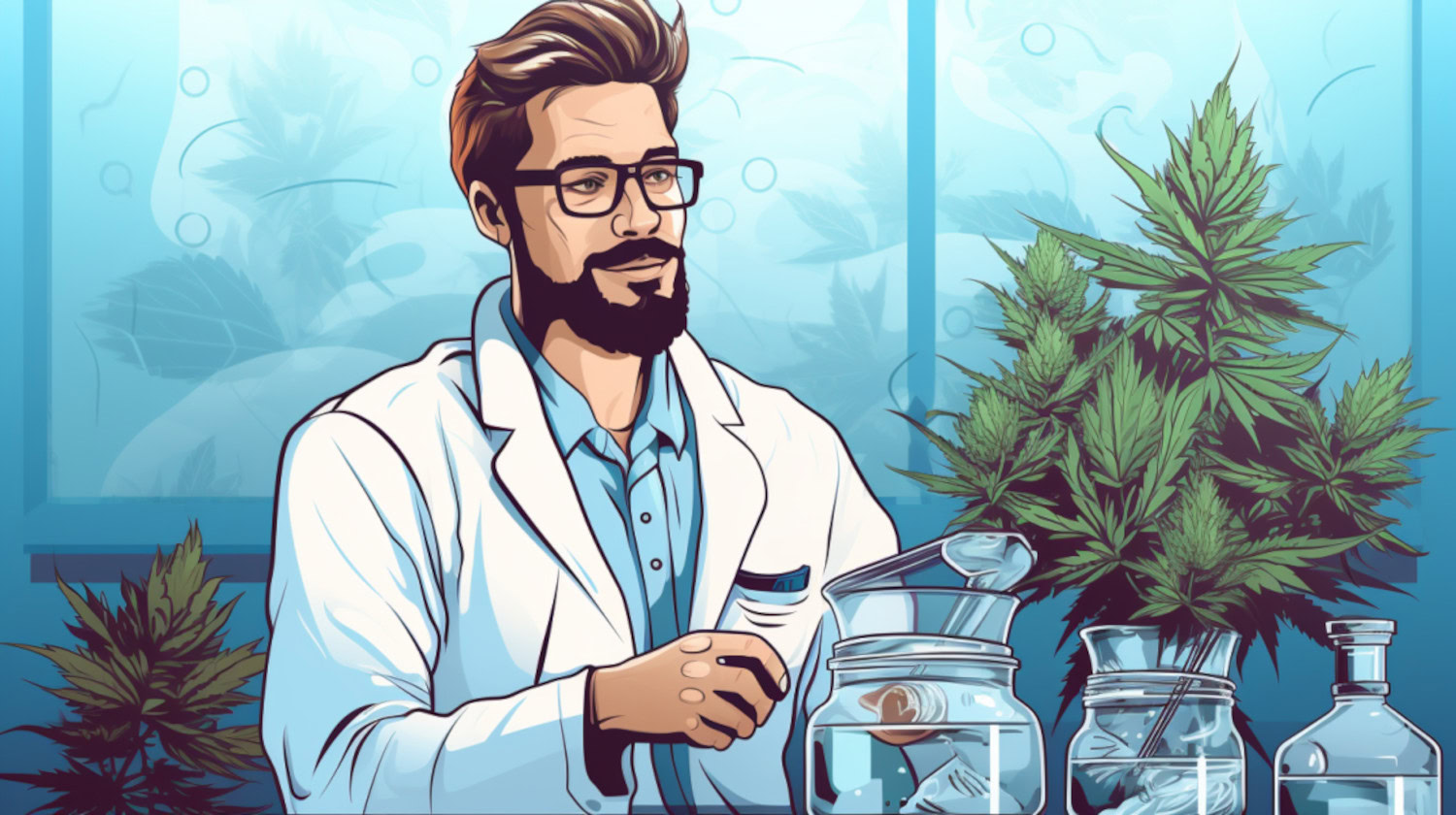Key Takeaways
- CBD may offer potential benefits for managing autism symptoms, but more research is needed to understand its effectiveness fully.
- Current studies indicate improvements in social communication and behavior among autistic individuals using CBD.
- Starting with a low dose and consulting with a healthcare provider are essential steps for safely using CBD.
Autism, or autism spectrum disorder (ASD), is a complex neurodevelopmental condition characterized by challenges in social interaction, communication, and repetitive behaviors. According to the CDC, approximately 1 in 36 children in the United States is diagnosed with autism, making it a common condition with significant impacts on daily life.
As traditional treatments often fall short, many are turning to alternative therapies like CBD for potential relief. It’s shown that CBD helps with anxiety, insomnia, and chronic pain. But can CBD help with autism? This article explores the latest research on CBD for autism, examining its possible benefits, risks, and best practices for its use.
What is Autism?
Autism spectrum disorder (ASD) is a developmental disorder that affects communication, behavior, and social interaction. The symptoms of autism can vary widely, but common signs include difficulties in social communication, repetitive behaviors, and specific interests. Typically diagnosed in early childhood, autism symptoms can range from mild to severe.
The exact causes of autism are still not fully understood, but a combination of genetic and environmental factors may play a role. Risk factors for autism include having a family history of the condition, specific genetic mutations, and having older parents. Currently, treatment for autism includes therapy and, in some cases, medication to manage particular symptoms like anxiety or hyperactivity.
Behavioral therapy is still the primary treatment for autism. Although prescription medicines are available for the treatment of symptoms of autism, some patients and caregivers advocate use or supplement treatment with CBD products.
Benefits of Using CBD for Autism

Recent research has shown promising results with the use of CBD for autism, specifically CBD for kids on the spectrum. CBD, or cannabidiol, is a non-intoxicating compound found in cannabis that has multiple potential therapeutic properties. Studies suggest that CBD may help improve symptoms associated with autism, particularly in areas like social communication, behavior, and anxiety.
One study found that children and adolescents with ASD treated with CBD-rich cannabis showed marked improvements in social symptoms, including reduced irritability, aggressiveness, and hyperactivity.1 Another study reported that CBD reduced hyperactivity and improved sleep problems in children with autism, with 74.5% of patients experiencing an overall improvement in other autism symptoms.2 Anxiety, especially panic and separation types during changes in routine, also lessened when treated with CBD.3
Each study’s CBD dosing guideline suggested a dose based on the child’s body weight in kilograms. The CBD dosing for autism ranged from very conservative (0.7mg/kg/day)5 to a higher daily dose of 16mg/kg/day.3 Despite these differences, all three approaches proved effective, indicating that a wide range of CBD doses may benefit ASD, with the ideal dosage varying based on individual patient needs.
Other anecdotal reports from parents suggest that CBD can help reduce self-injurious behavior and enhance communication skills. Clinical studies confirm parent-reported results.
While these findings are encouraging, research is in its early stages. Studying the long-term effects and safety of using CBD for autism is still necessary.
CBD and Autism: Are There Any Risks?
While CBD for autism shows promise in managing specific symptoms, it has some potential risks and side effects associated with its use. Research has identified several potential adverse effects of CBD, mainly when used in high doses or in combination with other medications. Common side effects may include fatigue, diarrhea, changes in appetite, and, in some cases, liver abnormalities.
One of the primary concerns with using CBD for kids on the autism spectrum is the potential for drug interactions. CBD can interfere with the metabolism of certain medications, leading to either increased or decreased levels of the drug in the bloodstream. This interaction can be particularly problematic for children taking antiepileptic or antipsychotic medications, as it may alter the effectiveness of these drugs or increase the risk of side effects.4
Another consideration is the lack of long-term studies on the use of CBD and autism. While short-term studies have shown some benefits, the long-term effects of regular CBD use in autistic individuals are still unknown. Parents and caregivers should consult with a healthcare provider before starting any CBD regimen and closely monitor any changes in symptoms or side effects.
CBD as a Treatment for Autism

As interest in CBD for autism grows, can it replace traditional autism treatments or serve as a complementary therapy? Current research suggests that while CBD may offer benefits for managing some symptoms of autism, it is not likely to replace conventional treatments entirely. Instead, CBD is often used by individuals alongside other therapies to enhance their effectiveness potentially or to address specific symptoms resistant to standard therapies.
One systematic review found that while behavioral interventions remain the primary treatment for autism, cannabinoids, including CBD, may provide additional relief for symptoms such as anxiety, aggression, and repetitive behaviors. However, the review noted the evidence is still sparse, indicating the need for further studies to confirm these findings.5
In some cases, using CBD for autism may reduce the need for other medications. For example, one study reported that a child with mild autism symptoms was able to stop taking an antipsychotic drug after starting CBD treatment. However, this was not the case for most participants in the study.5 These findings suggest that CBD may be beneficial as a complementary treatment rather than a standalone solution.
Tips for Using CBD for Autism
The interest in using CBD for autism is understandable. It’s generally considered safe, doesn’t cause impairment, and is shown to be effective in treating certain symptoms.
Before starting any CBD regimen, consult with a healthcare provider. A doctor can provide personalized guidance and help determine the appropriate dosage. They may monitor for potential drug interactions or side effects, particularly if the individual is already on other medications. They can help determine a baseline of current symptoms, which helps measure any changes in autism symptoms once CBD is added to the plan.
The CBD products used should be high quality. Look for products that have been third-party tested for potency and contaminants. Be aware of any sensitivity to ingredients or allergies, and avoid those with artificial additives, flavors, or coloring. Reputable manufacturers of CBD products certify safety and quality, providing the best chance for positive outcomes in managing autism symptoms.
CBD is available in vape form. CBD cartridges are often highly concentrated, and autistic adults may find them useful for on-the-go therapy for daily anxiety and stressful circumstances.
CBD dosage for autism follows a measured approach to ensure both safety and effectiveness. Start low and go slow. Begin with a low dose of CBD, such as 2.5 mg to 5 mg, and gradually increase it by small increments. This method helps minimize the risk of side effects.6
Keep a detailed daily record of any changes or improvements after starting CBD. Monitoring symptoms will help in dosage adjustments and in the assessment of the overall effectiveness of the treatment over time.
Ask a Budtender: Which CBD Products are Best For Autism?

When selecting CBD for autism, patient reports suggest that oils and tinctures are among the most effective forms due to their precise dosing and ease of administration. In most pediatric clinical studies on CBD for autism, researchers opt for CBD oil to administer doses.
CBD oils with a high CBD-to-THC ratio, such as 20:1, have demonstrated some effectiveness in clinical trials for reducing symptoms like irritability, aggressiveness, and hyperactivity without significant side effects.5
When buying the best CBD oil for autism, look for products that are third-party tested for potency and purity. High-quality CBD oils, particularly those infused in medium-chain triglyceride (MCT) oil, are preferred because they offer consistent dosing and better taste than alcohol-based tinctures. Look for clear labeling of the CBD-to-THC ratio.
Follow the dosing strategy outlined by a medical professional. Parents have reported success starting with just one drop per day and slowly increasing the dosage based on improvements in their child’s behavior, such as decreased irritability or improved sleep.2
Gummies may offer another option to administer CBD. They can taste good, which may help avoid struggles for children with food sensitivity issues common with autism. However, some commercially produced gummies can contain undesirable ingredients, such as artificial sugars or coloring.
Another option to consider is making CBD gummies at home. With full control over the ingredient selection, homemade CBD gummies or oils allow you to tailor the flavor and dosage to your specific needs and preferences. Making edible products also lets you avoid additives and preservatives, offering a more natural option.
By choosing high-quality products or making your own and following a careful dosing strategy, you can maximize the benefits of CBD for autism, helping to manage symptoms effectively while minimizing risks.
References
- Hacohen M, Stolar OE, Berkovitch M, et al. Children and adolescents with ASD treated with CBD-rich cannabis exhibit significant improvements particularly in social symptoms: an open label study. Translational Psychiatry. 2022;12(1):375. doi:https://doi.org/10.1038/s41398-022-02104-8
↩︎ - Barchel D, Stolar O, De-Haan T, et al. Oral Cannabidiol Use in Children With Autism Spectrum Disorder to Treat Related Symptoms and Co-morbidities. Frontiers in Pharmacology. 2019;9(1521). doi:https://doi.org/10.3389/fphar.2018.01521
↩︎ - Stolar DA. Effects of Medical Cannabis Treatment for Autistic Children on Anxiety and Restricted and Repetitive Behaviors and Interests: An Open-Label Study. Cannabis and cannabinoid research. Published online 2024. doi:https://doi.org/10.1089/can.2024.0001
↩︎ - Huestis MA, Solimini R, Pichini S, Pacifici R, Carlier J, Busardò FP. Cannabidiol Adverse Effects and Toxicity. Current Neuropharmacology. 2019;17(10):974-989. doi:https://doi.org/10.2174/1570159X17666190603171901
↩︎ - Ibsen EWD, Thomsen PH. Cannabinoids as alleviating treatment for core symptoms of autism spectrum disorder in children and adolescents: a systematic review. Nord J Psychiatry. 2024. doi:10.1080/08039488.2024.2381541 ↩︎
- MacCallum CA, Russo EB. Practical considerations in medical cannabis administration and dosing. European Journal of Internal Medicine. 2018;49(49):12-19. doi:https://doi.org/10.1016/j.ejim.2018.01.004
↩︎
The information in this article and any included images or charts are for educational purposes only. This information is neither a substitute for, nor does it replace, professional legal advice or medical advice, diagnosis, or treatment. If you have any concerns or questions about laws, regulations, or your health, you should always consult with an attorney, physician or other licensed professional.




